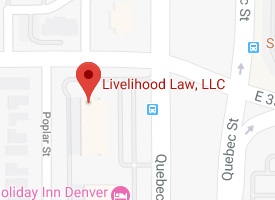
Asking questions. Cheerful kind attentive boss smiling and asking questions while looking at the pregnant employee
New Workplace Protections for Pregnant and Nursing Mothers
In late 2022, President Biden signed two new laws that are intended to provide more workplace protections for pregnant and nursing employees. The two laws are the Pregnant Workers Fairness Act (PWFA) and the Providing Urgent Maternal Protections for Nursing Mothers (PUMP) Act.
These new laws will go into effect on June 27, 2023, and provide more federal protection to you if you are a pregnant or nursing mother in the workplace. We’ll help you understand what these laws say so you can know your rights.
What Does the PWFA Mean for Me?
The PWFA requires covered employers to provide “reasonable accommodations” to a worker who is pregnant and has known limitations related to their pregnancy, childbirth, or related medical conditions.
If you’re wondering what they mean by “covered employers,” it is spelled out in the law. It applies to private and public sector employers with at least 15 employees. It also includes Congress, Federal agencies, employment agencies, and labor organizations. So, if you work somewhere with at least 15 employees, you are probably covered. The attorneys and staff at Livelihood Law Firm can tell you more if you think you have a case.
What Are Reasonable Accommodations?
The House Committee on Education and Labor Report on the PWFA provided a number of examples of possible “reasonable accommodations,” which include:
- the ability to sit or drink water,
- receive closer parking,
- have flexible hours,
- receive appropriately sized uniforms and safety apparel,
- receive additional break time to use the bathroom, eat, and rest,
- take leave or time off to recover from childbirth,
- and be excused from strenuous activities and/or activities involving exposure to compounds unsafe for pregnancy.
There is information on the official Equal Employment Opportunity Commission (EEOC) website if you want more details.
What Does the PUMP Act Mean for Me?
The PUMP Act extends the Fair Labor Standards Act (FLSA), ensuring most nursing employees have the right to reasonable break time and a place, other than a bathroom, that is shielded from view to express breast milk while at work. This applies for up to one year after the child’s birth.
A few key points to know from the Department of Labor’s website are:
- Covered employees may take reasonable break time “each time such employee has need to express the milk.”
- The frequency and duration (how often and how long) of breaks needed will likely vary depending on the nursing employee and the child.
- Employees who telework are eligible the same as other employees.
It’s also important to know that the laws also say an employer can’t retaliate against you for requesting the accommodations you are allowed under these laws.
How Does This Affect Existing Colorado Law?
The state of Colorado also provides protections to pregnant worker under their own state laws, including the Pregnant Workers Fairness Act. Neither the PWFA nor the PUMP Act supersede any state laws that provide more protections to workers than federal laws.
Attorneys at Livelihood Law Firm know the ins and outs of the law and are committed to making sure your rights are protected.


